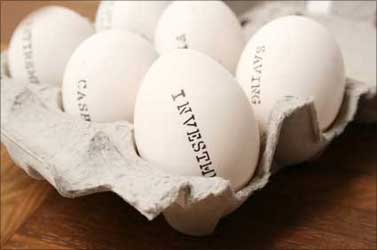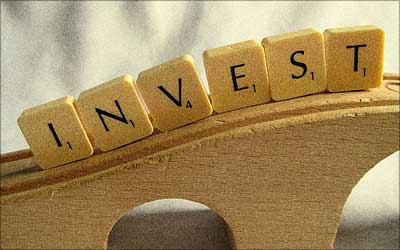Outlook Money
Choosing the right mutual fund marks the first step towards long-term wealth creation.
However, doing so might not be easy as it entails making several decisions.
The first choice that you have to make is to decide on the category of scheme you wish to invest in.
Every scheme invests in a particular kind of security, which determines the risk it carries and the expected returns from it. Ensure these factors match your investment objective and risk profile.
Do not be casual while selecting an MF scheme. The following pointers should help you in assessing whether or not an MF scheme deserves your money.
. . .
How to choose the right mutual fund
How to choose the right mutual fund
Key information memorandum
The Key Information Memorandum is an abridged version of the OD, containing most of the 'key information' about the scheme.
When reading a KIM, make the investment objective the starting point. It will tell you about the scheme's goal and its investing rationale.
It will also specify where the scheme will invest its funds in equity or debt, or both. A KIM tells you about the scheme's asset allocation pattern.
This helps you match the scheme's risk profile with yours and also compare various schemes to avoid overlapping.
. . .
How to choose the right mutual fund
Fund fact sheets
The OD and the KIM tell you all that you need to know about a scheme, except its latest performance and portfolio, for which you need to go through its latest fact sheet.
Usually released by a fund house on a quarterly or monthly basis, it documents the performance of all its schemes over the review period.
. . .
How to choose the right mutual fund
Other filters
Do the fund's objectives match yours? Go through the 'investment objectives' section in the OD and also check out its 'asset allocation pattern' to know where, and in what proportion, the scheme plans to invest its money.
Is it a good performer?
Compare a scheme's performance with that of its peers over various time periods, as well as against relevant benchmarks. Look at the fund's performance over a longer period of time.
. . .
How to choose the right mutual fund
Is the portfolio sound? Your scheme should, at all times, stay within its chosen investment space and follow the tenets of sound fund management.
Be wary of schemes that call themselves 'large-cap equity schemes' but mostly have mid-caps in their portfolio.
Another factor that you should look at is adequate diversification across companies and sectors, which ensures that when one security or sector does poorly, your scheme's NAV does not plunge.
However, at the same time, make sure that the scheme is not over diversified as that may negatively affect your returns.
. . .
How to choose the right mutual fund
Are its expenses within limits? Fund houses charge you an asset management fee and also pass on other expenses incurred in running the fund.
All these expenses are deducted from the fund's NAV, within limits, reducing your returns.
The annual report, under 'notes to accounts', states exactly how much your scheme charges as expense in any given year.
The amount is stated as 'expense ratio', which means costs as a percentage of the scheme's corpus.
. . .
How to choose the right mutual fund
So, in a given year, if your scheme returns 15 per cent and shows an expense ratio of 2 per cent, it means that it earned 17 per cent, but used up 2 percentage points of that to meet its expenses.
Obviously, the lower the expense ratio, the better it is.
Following all these checks, if the scheme you have shortlisted passes muster, go ahead and invest in it.
True, the financial world is replete with uncertainty, but if you do your homework, your portfolio would not disappoint you in the long run.











article